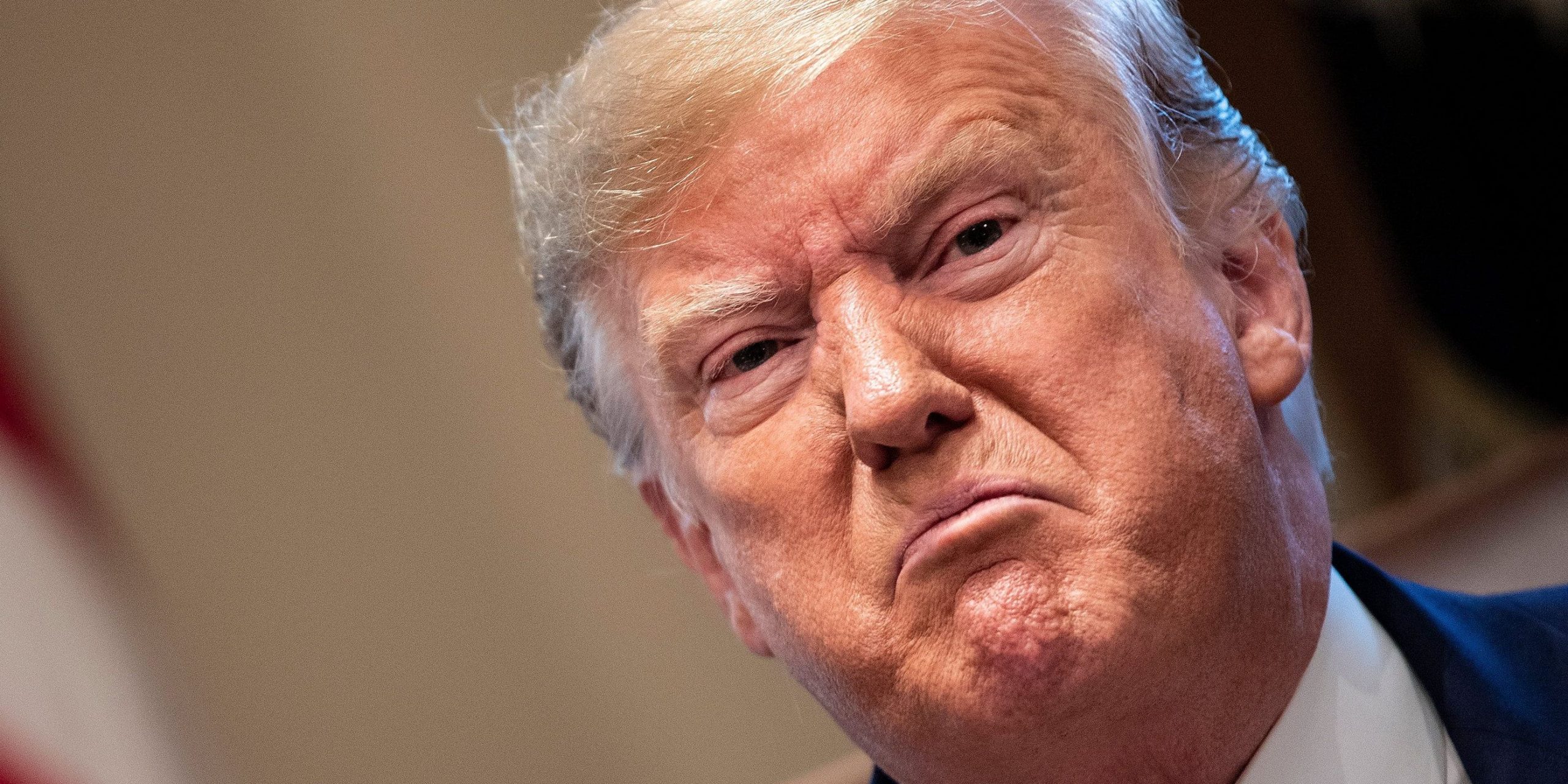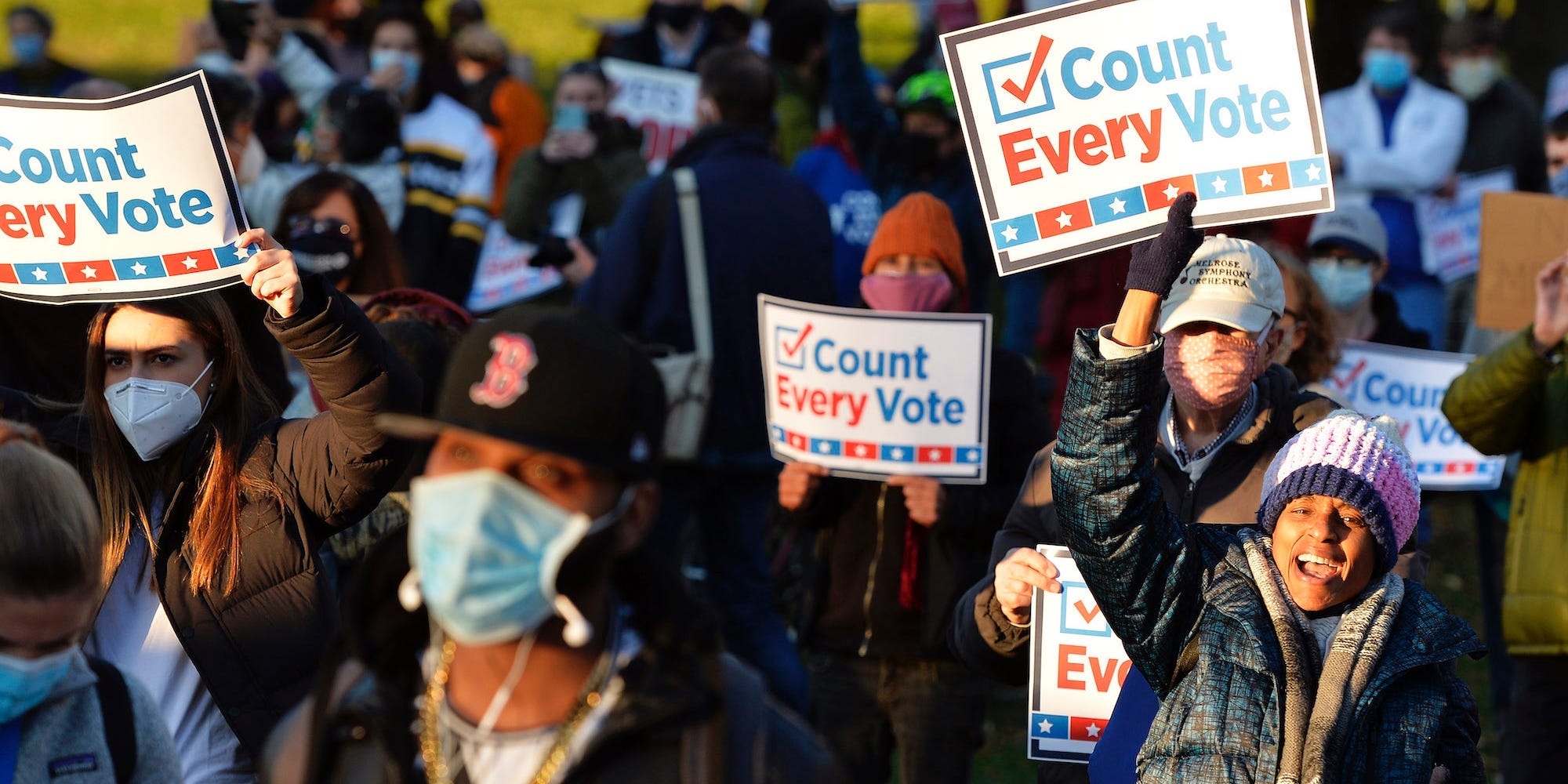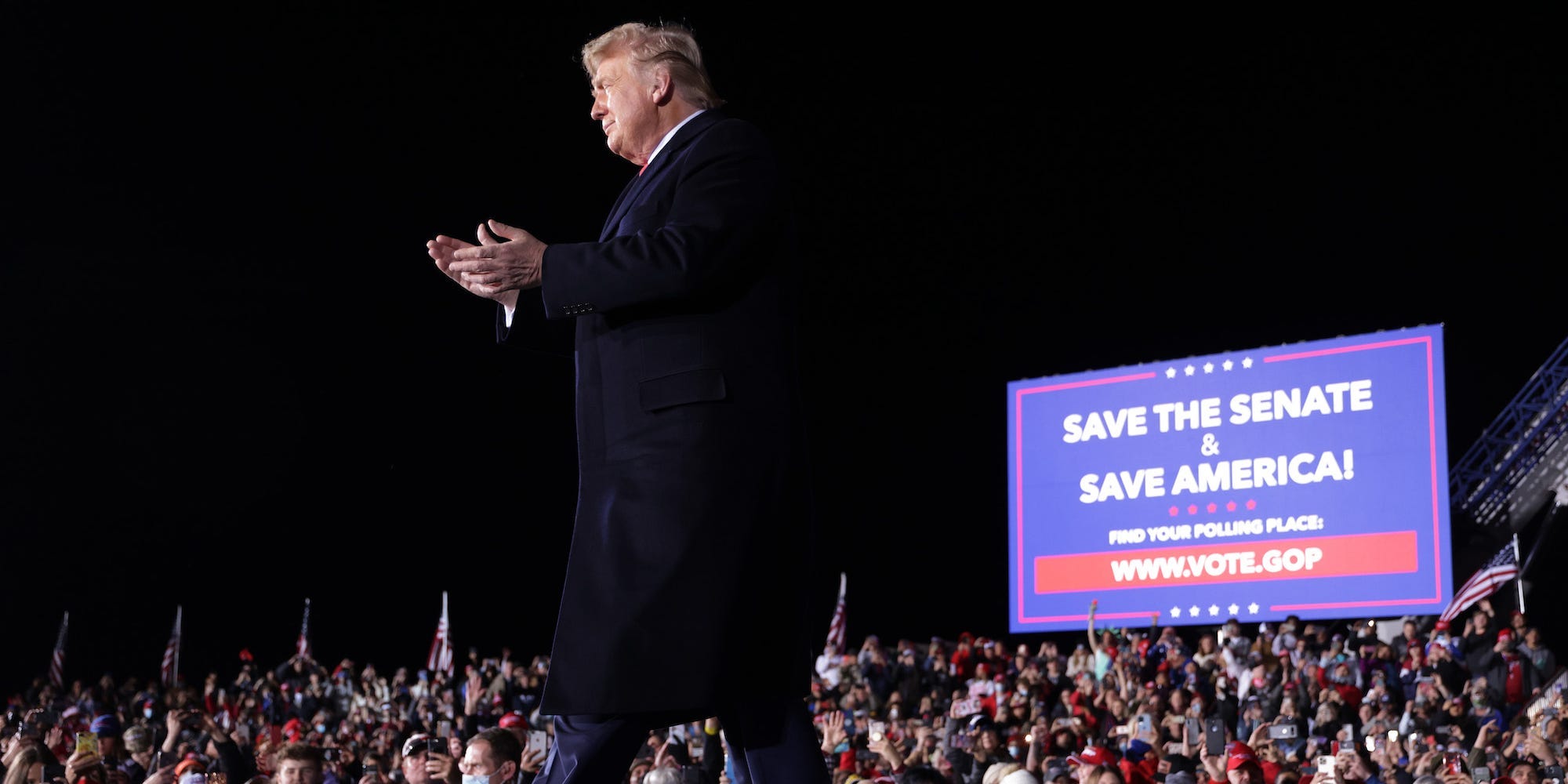
- In Trump’s Senate trial, impeachment managers showed his history of cheering on violence.
- Video footage showed then-candidate Trump endorsing violence at his rallies starting in 2015.
- Trump’s yearslong campaign of pushing baseless election fraud claims also led to the Capitol siege, they said.
- Visit the Business section of Insider for more stories.
On the third day of President Donald Trump’s Senate trial, the Democratic House impeachment managers made a case that Trump’s history of applauding or downplaying violence at political events directly led to the January 6 insurrection, which he is charged with inciting.
Lead impeachment manager Rep. Jamie Raskin showed a video montage of Trump endorsing violence against protesters at his campaign rallies going back to 2015. Impeachment manager Rep. Dianna DeGette also cited the statements of rioters both during and after the insurrection who explicitly pointed to Trump’s statements to “stop the steal” and “fight like hell” as to why they stormed the Capitol.
Trump’s years of egging on political violence while also claiming elections from 2012 to 2020 were rigged set his supporters on a path that led directly to the siege of the US Capitol.
“Ever since he became president, Trump revealed what he thought of political violence. For his side, he praised it and encouraged it,” Raskin said.
—CBS News (@CBSNews) February 11, 2021
Trump normalized political violence for years
- "See, the first group, I was nice. Oh, take your time. The second group, I was pretty nice. The third group, I'll be a little more violent. And the fourth group, get the hell out of here," Trump said in an October 2015 campaign rally in Miami to protesters being booted from his events.
- "If you see somebody getting ready to throw a tomato, knock the hell of them," Trump said at a February 2016 rally in Iowa, adding, "I will pay for the legal fees, I promise."
- Trump said that "any guy who can do a body slam, he's my kind of guy" of Gov. Greg Gianforte of Montana, who body-slammed a journalist while running for the House in May 2017.
- In response to the deadly right-wing extremist violence in Charlottesville, Virginia, in August 2017, Trump said, "I think there's blame on both sides ... but you also had people who were very fine people on both sides."
- After armed right-wing militia members staged a protest in the Michigan state capitol over Gov. Gretchen Whitmer's COVID-19 restrictions, Trump tweeted, "The Governor of Michigan should give a little, and put out the fire. "These are very good people, but they are angry. They want their lives back again, safely! See them, talk to them, make a deal."

Getty Images/Joseph Prezioso
Trump pushed baseless, politically-motivated fearmongering over election fraud
- In the early 2010s, Trump landed on the political radar for pushing the racist "birther" conspiracy that former President Barack Obama was born in Kenya, not Hawaii, and was thus not eligible to be president of the US. The false conspiracy sought to portray Obama's election wins as fraudulent and secured under false pretenses.
- "An 'extremely credible source' has called my office and told me that @BarackObama's birth certificate is a fraud," Trump tweeted in 2012. By 2016, he had largely dropped the theory after spending years promoting it on mainstream media networks like MSNBC, ABC, CNN, and Fox News.
- Trump reprised another version of birtherism in August 2020 when he said that he had "heard" that Vice President Kamala Harris "did not meet the requirements" to be vice president but said he didn't know if it was true. Harris was born in Oakland, California to an Indian mother and Jamaican father.
- About a month prior to the 2012 election, Trump tweeted what he would continue to repeat over the next eight years: "Be careful of voter fraud."
- After Sen. Mitt Romney of Utah lost the presidential election to Obama, Trump went on a Twitter tear about the electoral college, calling the election a "sham" and "travesty." He tweeted: "The phoney electoral college made a laughing stock out of our nation. The loser one!" And, in a sign of things to come, he added: "We can't let this happen. We should march on Washington and stop this travesty. Our nation is totally divided!"

Alex Wong/Getty Images
- In his 2016 primary campaign, Trump falsely accused his opponents, Sen. Ted Cruz of Texas and Sen. Marco Rubio of Florida, of being involved in "rigging" elections, which in Cruz's case referred to the Iowa caucus.
- "Word is-early voting in FL is very dishonest. Little Marco, his State Chairman, & their minions are working overtime-trying to rig the vote, Trump tweeted without evidence on March 12, 2016.
- "Serious voter fraud in Virginia, New Hampshire and California - so why isn't the media reporting on this? Serious bias - big problem!" Trump tweeted on November 26, 2016, despite having just defeated former Secretary of State Hillary Clinton and securing the presidency.
- Even after winning the 2016 election, Trump continued to falsely claim that he lost the popular vote due to high levels of voter fraud from undocumented immigrants and dead people.
- "I will be asking for a major investigation into VOTER FRAUD, including those registered to vote in two states, those who are illegal and....even, those registered to vote who are dead (and many for a long time). Depending on results, we will strengthen up voting procedures!," Trump tweeted on January 25, 2017.
- In 2020 again, Trump tweeted unfounded claims of dead people voting on multiple occasions.
- Trump convened a Commission on Election Integrity in May 2017 that disbanded less than a year later without producing a report or any evidence of fraud after states refused to hand over sensitive voter information, including social security numbers.
- In 2018, Trump tweeted about the Florida senate and gubernatorial races, saying: "The Florida Election should be called in favor of Rick Scott and Ron DeSantis in that large numbers of new ballots showed up out of nowhere, and many ballots are missing or forged. An honest vote count is no longer possible-ballots massively infected. Must go with Election Night!"
- While the US was grappling with the deadly coronavirus pandemic in March 2020, Trump began spreading misinformation that mail voting was rife with fraud and corruption, planting the seeds early among his supports to believe the election was rigged against him. Medical experts said voting by mail was a safer alternative than in-person voting because it reduced the chances of the infection being transmitted in large crowds.
- Trump tweeted 80 times about "rigged elections" and 62 times about "voter fraud" beginning in 2020 and leading up to the insurrection, according to archives from his now-suspended Twitter account.
- He ratcheted up his rhetoric after his election loss, when courts and election officials rejected his attempts to overturn election results, tweeting 11 times that his "landslide" victory had been stolen from him - continuing until the evening of January 6 while law enforcement officers regained control of the US Capitol.
